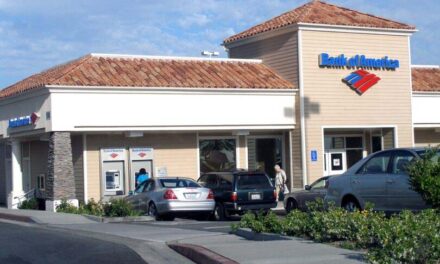Talk, Trust, Test: A Parent’s Guide to HIV Awareness
The first cases of HIV were reported in Los Angeles in June 1981. For 43 years, it has impacted our lives, with thousands still contracting HIV each year. As parents and trusted caregivers, it’s crucial to have open conversations about this reality.

By Brittinae Phillips
The first cases of HIV were reported in Los Angeles in June 1981. For 43 years, it has impacted our lives, with thousands still contracting HIV each year. As parents and trusted caregivers, it’s crucial to have open conversations about this reality.
National HIV Testing Day, observed on June 27, reminds us of the importance of these discussions. This year’s theme, “Level up your self-love: check your status,” emphasizes the need for awareness and proactive steps in knowing one’s HIV status.
Understanding HIV
Human Immunodeficiency Virus (HIV) attacks the immune system, which helps the body fight off infections. Left untreated, HIV can lead to acquired immunodeficiency syndrome (AIDS). In this condition, the immune system is severely damaged, leaving our bodies highly vulnerable to life-threatening infections, cancers, and diseases.
HIV and Black Youth
Despite only accounting for 12% of the nation’s population, African Americans accounted for nearly half of HIV diagnoses — a trend that’s persisted since the epidemic began in the 1980s. As of 2020, Black people have developed AIDS at 9.3 times the rate of white people. Lack of healthcare access, social stigma, and misinformation about transmission and prevention contribute to the high rates of HIV in Black communities. Early diagnosis and treatment are crucial to managing HIV, keeping the immune system strong and preventing transmission to others.
Another way to curb infection rates is to talk to teens and young adults about HIV prevention and treatment. While challenging, having proper counseling and family support helps young people engage more quickly with necessary medical services. In Los Angeles County, 13-24-year-olds had an 80.4% rate of starting medical care within one month of being diagnosed with HIV in 2021. This highlights that a proactive and supportive approach prepares our youth with the knowledge and resources they need to protect themselves.
Tips to Talk to Youth About HIV
Educate Yourself and Your Teen: Make sure you are well-informed about HIV, its transmission, prevention, and treatment. Be prepared to debunk common myths about the realities of living with HIV and how it affects people today. Use credible sources like the CDC and AIDSVu to correct misinformation, reduce stigma and facilitate more informed attitudes. Engage and encourage young people to ask questions and seek further information.
Create a Safe Space: Begin the conversation by choosing a quiet, private setting free from distractions. Use open-ended questions like, “What do you know about HIV?” to gauge their understanding and encourage dialogue. Ensure they know your conversation is confidential and comes from a place of love and concern. This openness fosters trust, making them more likely to share their thoughts and questions.
Prevention and Testing: Explain the importance of using condoms and how medications like PrEP (pre-exposure prophylaxis) and PEP (post-exposure prophylaxis) can significantly reduce the risk of HIV transmission. PrEP is taken daily to prevent HIV before exposure, while PEP is used after potential exposure to prevent infection. Also, remind young people that testing is simple, vital for early detection, and available at local health centers like Planned Parenthood.
Take Action Today
By having these crucial conversations, you can help the young people in your lives understand the significance of HIV testing and make informed decisions about their health. To learn more and to make an appointment to get tested, visit pp-la.org or call (800) 576-5544.
Brittinae Phillips, Sr. Education Manager for Planned Parenthood Los Angeles’s Black Health Initiative, manages community outreach and education for parents, college students, and youth.









